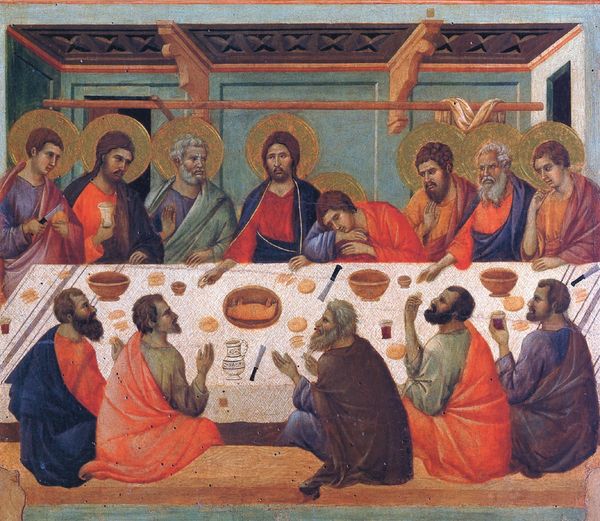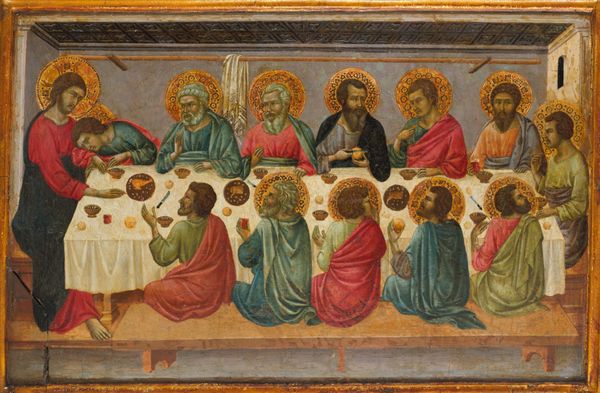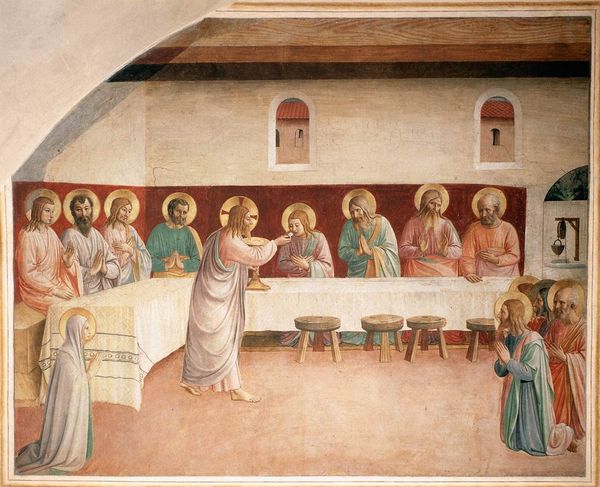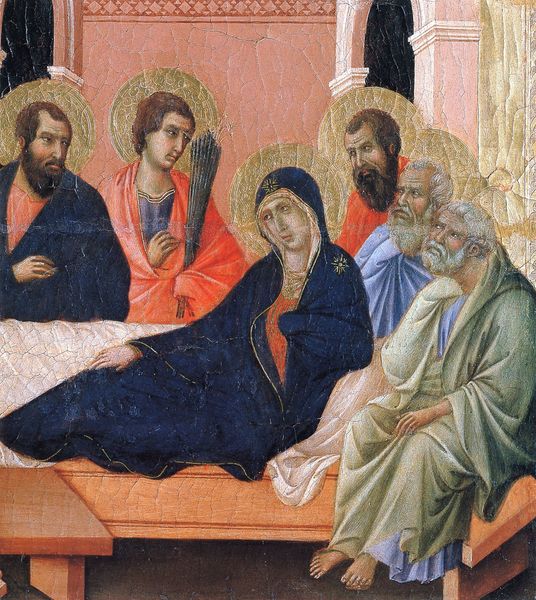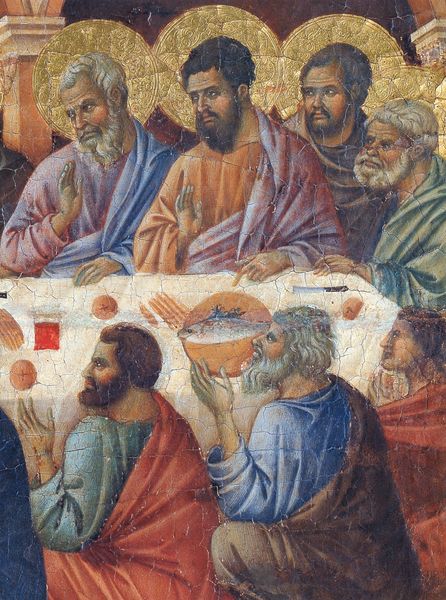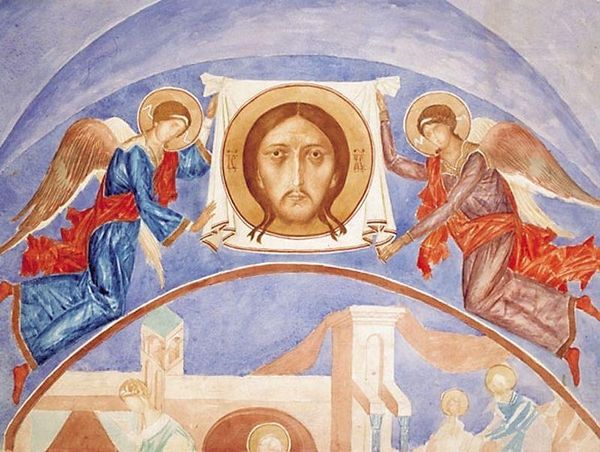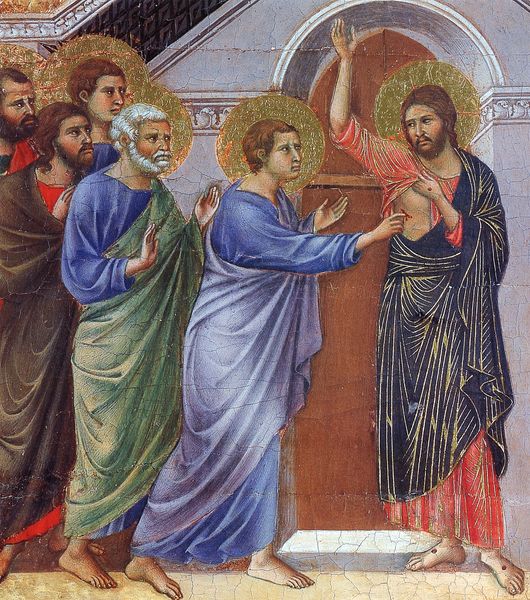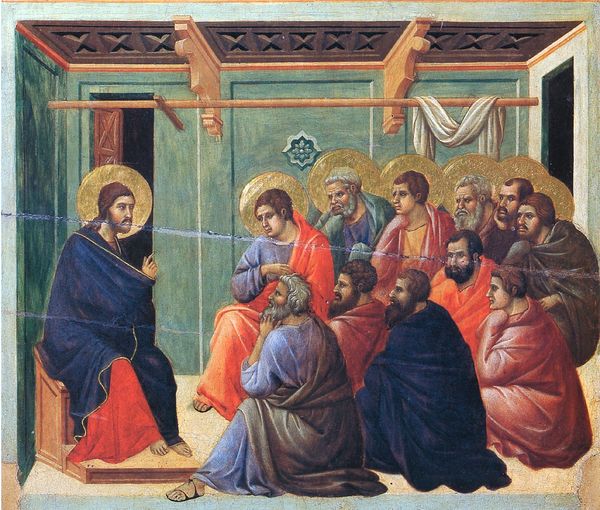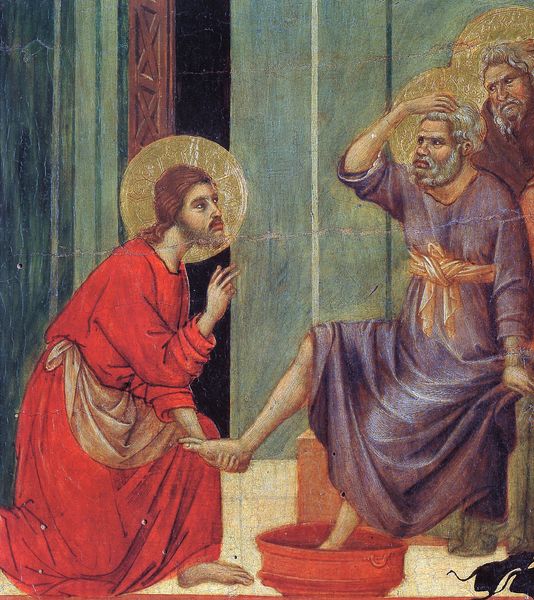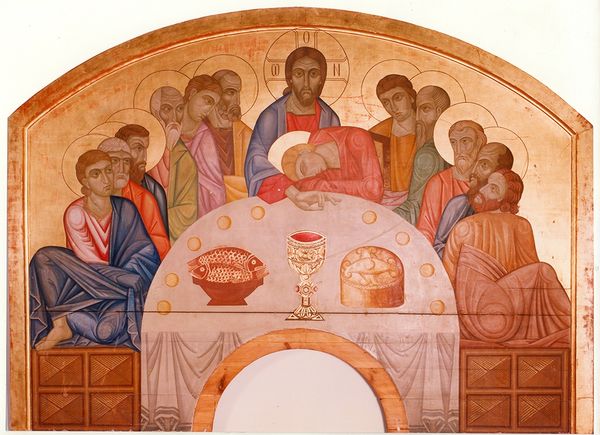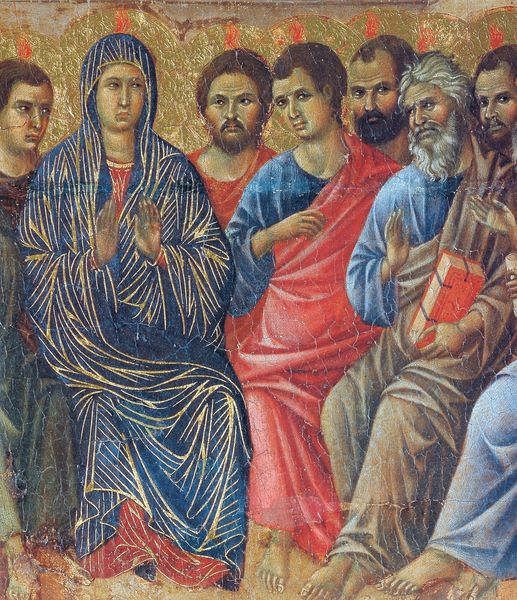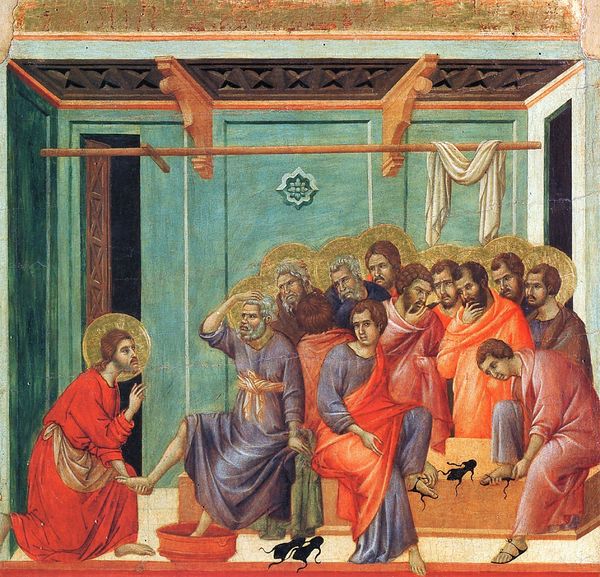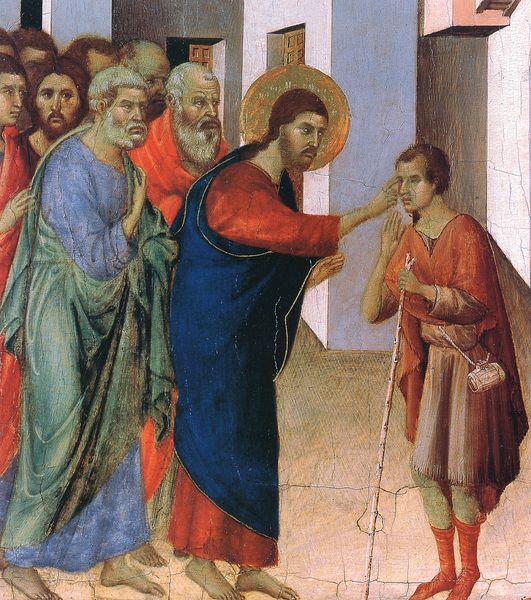
tempera, painting
#
narrative-art
#
tempera
#
painting
#
prophet
#
sienese-school
#
holy-places
#
figuration
#
oil painting
#
jesus-christ
#
christianity
#
history-painting
#
italian-renaissance
#
christ
Copyright: Public domain
Editor: So, this fragment, “Appearance of Christ to the Apostles,” by Duccio, painted around 1311 in tempera… It’s fascinating how even in this small portion, the figures’ expressions are so different. What emotional symbols were common at this time? Curator: Indeed, notice how Duccio uses halos as a symbolic device. The halo acts as an aura of divine authority, but consider what the expressions convey. The contrast isn't just aesthetic; it tells us something about each individual’s inner state in relation to the divine. What might their gestures communicate to you? Editor: The one on the left seems contemplative, while others appear in a state of shock, surprise. The food too seems symbolically important, almost performative in this rendering. Does the symbolism align with, say, other artists in Siena at this time? Curator: That's insightful. Look at the table. See the arrangement? This wasn't just a meal; the shared meal invokes Eucharistic imagery. Sienese painting was uniquely emotive at this time, contrasting with more formalized Byzantine modes, placing a greater emphasis on conveying narrative drama and psychological states. Do you think this reflects a broader social shift at the time? Editor: Maybe… a shift towards a more personal experience of faith? This emphasis on emotion definitely pulls you in. And the artist did all of this through symbolic gesture! Curator: Precisely. And those symbolic gestures, colors, and composition continue to speak to us centuries later, even in this small fragment, bridging cultural memory. Editor: This really offers new lenses on history, especially with your insight into the religious and cultural memory infused into this little scene. Thanks!
Comments
No comments
Be the first to comment and join the conversation on the ultimate creative platform.
